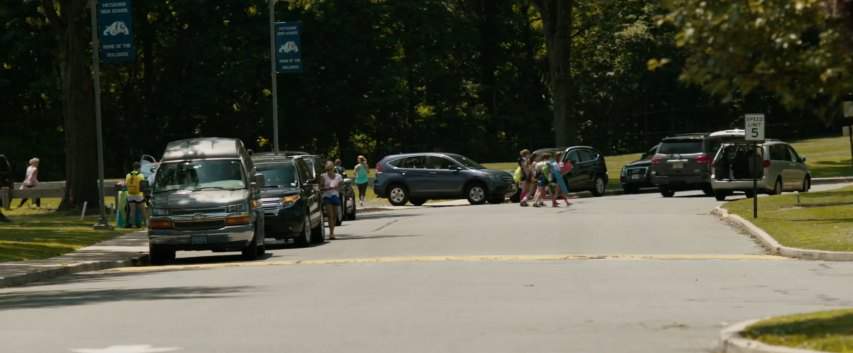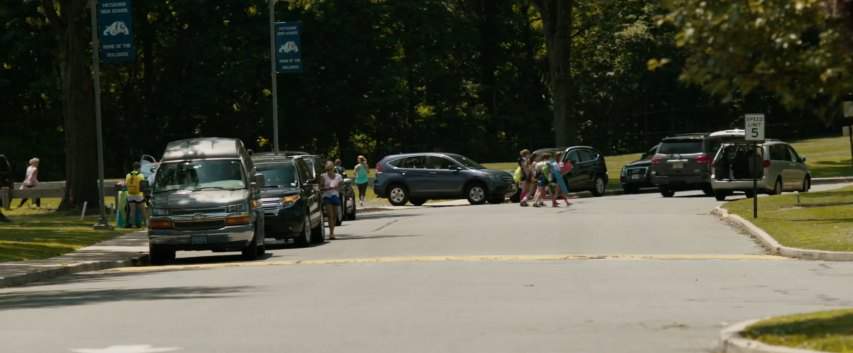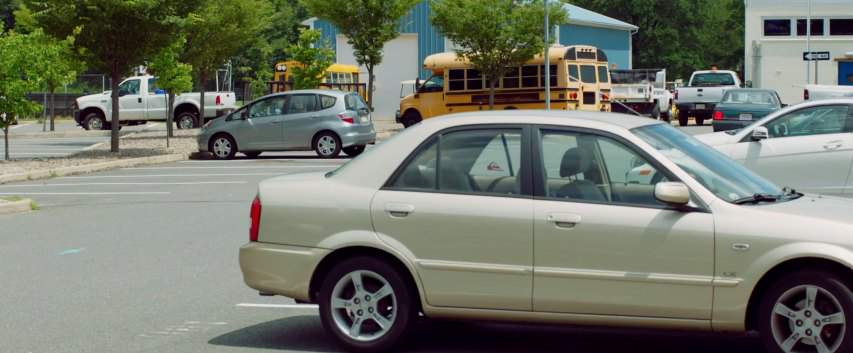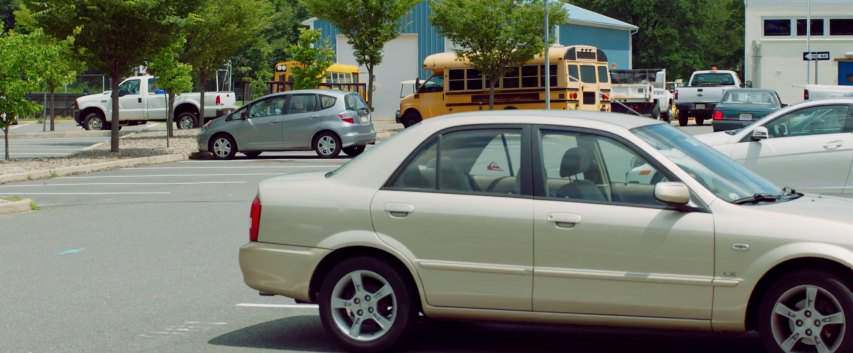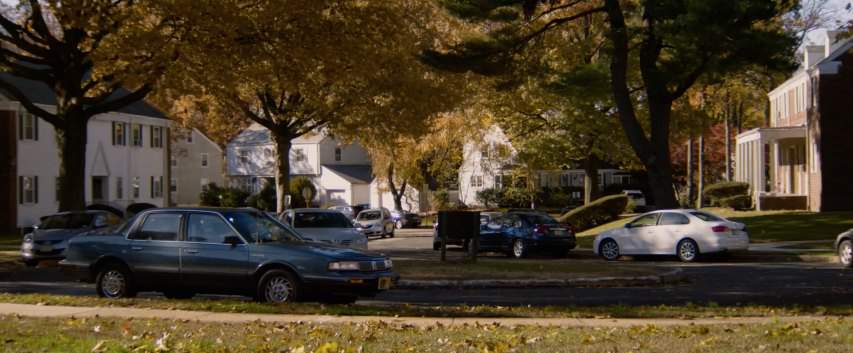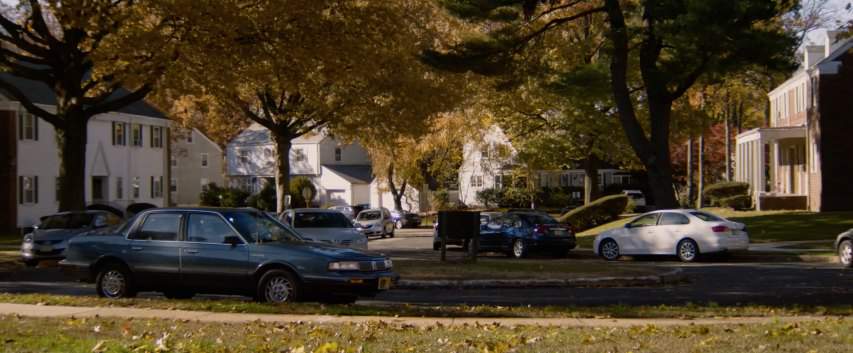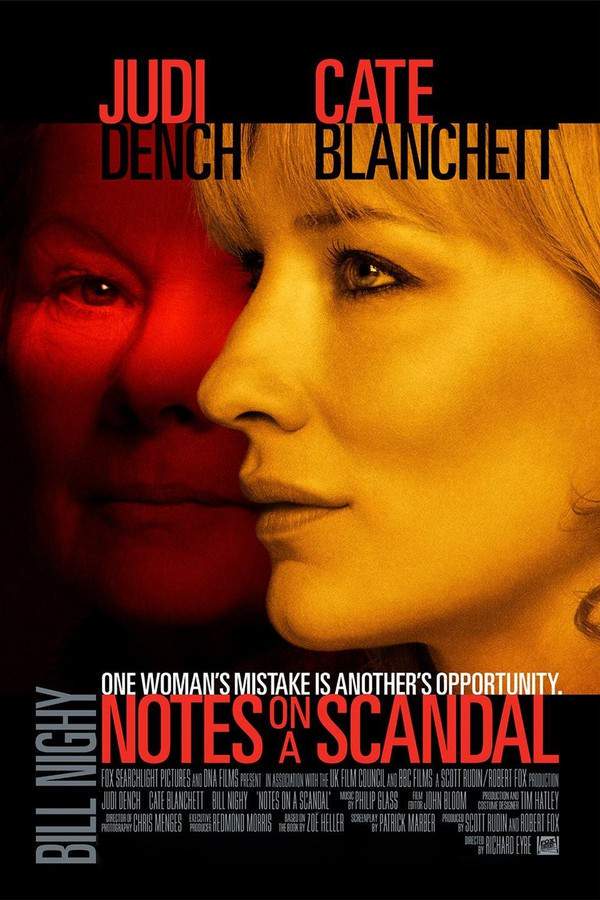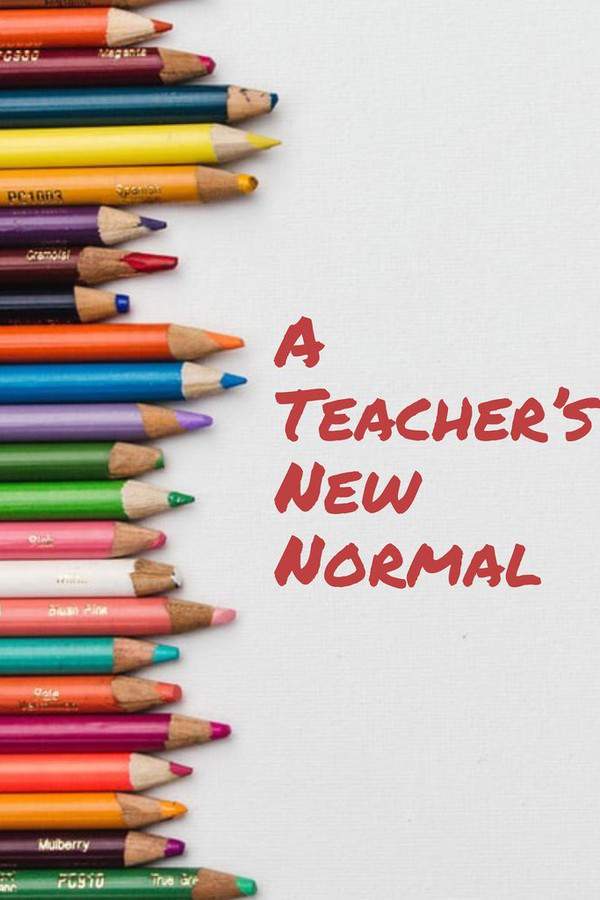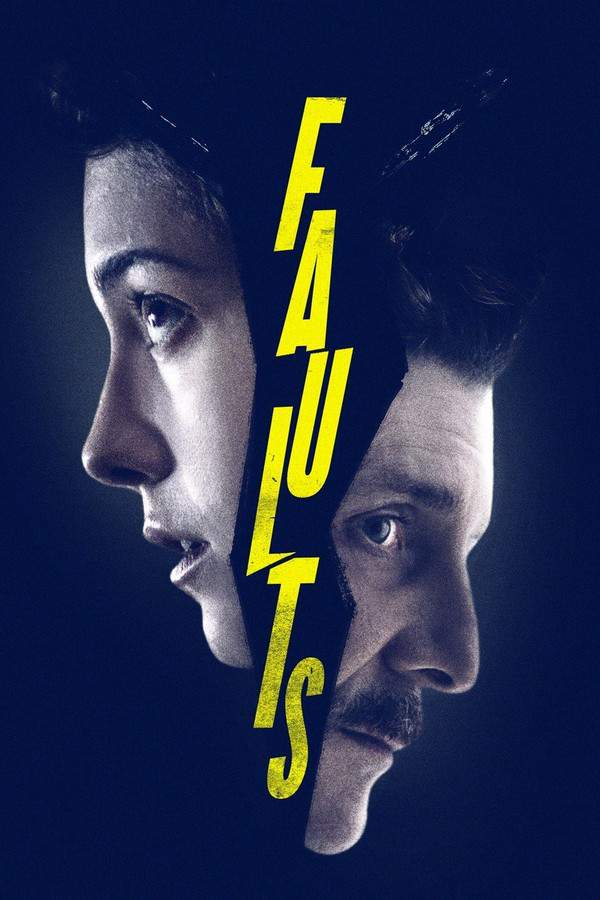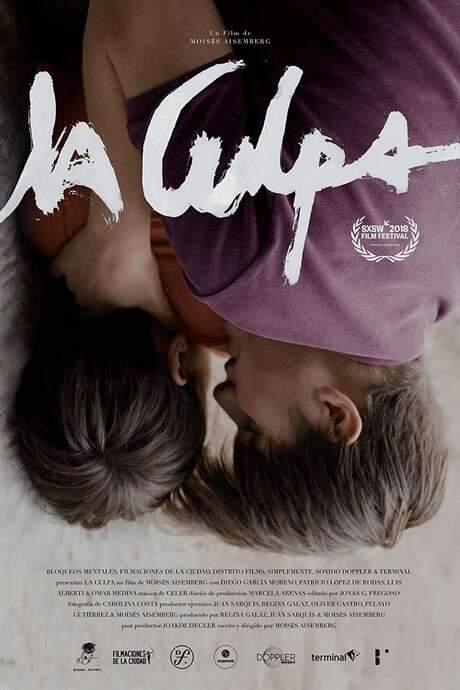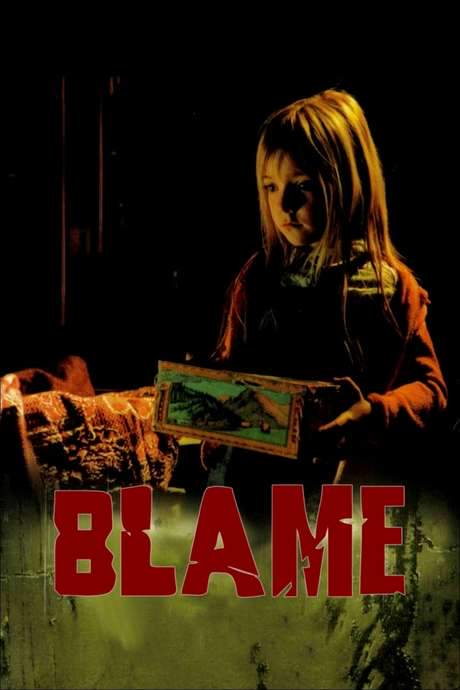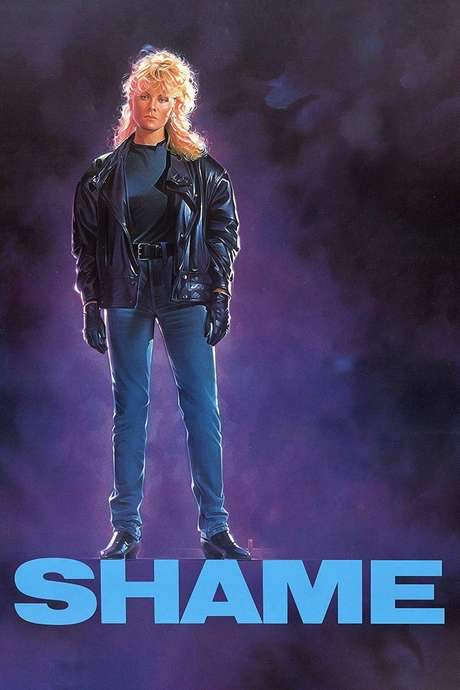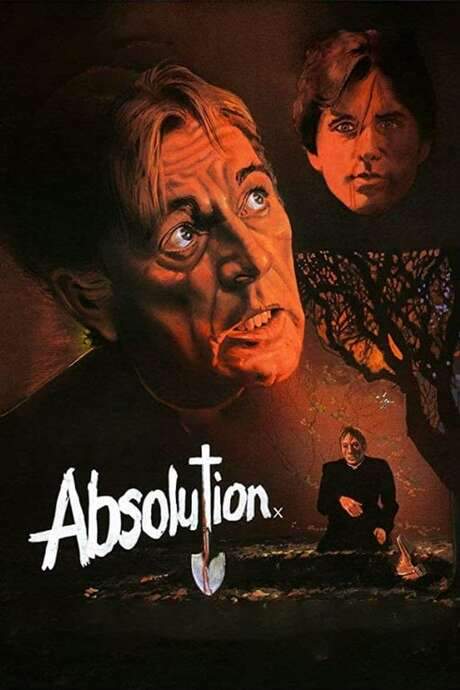Blame 2018
Runtime
100 min

During a new school year at a suburban high school, shy Abigail finds comfort in literature, much to the frustration of the scheming Melissa. When an unexpected casting in Arthur Miller's The Crucible favors Abigail over Melissa, her confidence grows and her connection with Jeremy deepens. However, Melissa's envy intensifies, triggering a series of events that expose unsettling secrets and impact the entire school community.
Does Blame have end credit scenes?
No!
Blame does not have end credit scenes. You can leave when the credits roll.
Meet the Full Cast and Actors of Blame
Explore the complete cast of Blame, including both lead and supporting actors. Learn who plays each character, discover their past roles and achievements, and find out what makes this ensemble cast stand out in the world of film and television.
External Links and Streaming Options
Discover where to watch Blame online, including streaming platforms, rental options, and official sources. Compare reviews, ratings, and in-depth movie information across sites like IMDb, TMDb, Wikipedia or Rotten Tomatoes.
Ratings and Reviews for Blame
See how Blame is rated across major platforms like IMDb, Metacritic, and TMDb. Compare audience scores and critic reviews to understand where Blame stands among top-rated movies in its genre.

The Movie Echo Score
While "Blame" demonstrates strong craft in its art direction and character work, it struggles with narrative coherence and pacing. Reviews highlight compelling visual choices and nuanced performances, but many criticize uneven plot development and loose plot threads. The soundtrack and visual style receive moderate praise, though the underlying story leaves some viewers unsatisfied. On balance, the film offers moments of insight but falls short of cohesive execution, resulting in a modest overall impression.
The Movie Echo Score Breakdown for Blame

Art & Craft
In terms of art direction and cinematography, "Blame" delivers a visually engaging debut marked by inventive framing and a restrained color palette that underscores the film’s emotional tone. Several reviewers praised Aaron Kovalchik’s lensing and Shephard’s assured directorial choices, though a handful noted occasional pacing issues and uneven editing transitions. Overall, the visual craft adds meaningful depth despite intermittent execution gaps.

Character & Emotion
When evaluating character and emotional resonance, "Blame" offers a collection of nuanced performances that capture teenage insecurity and interpersonal power dynamics. The lead delivers a layered portrayal of vulnerability tempered by fleeting confidence, and supporting roles convey credible tension within peer groups. While some critiques point to underdeveloped motivations and occasional detachment, the ensemble chemistry fosters an authentic sense of emotional stakes.

Story & Flow
In terms of story coherence and pacing, "Blame" presents moments of genuine engagement but is hindered by unresolved threads and uneven narrative flow. Several viewers and critics noted that plot developments can feel underexplored or abrupt, particularly around the climactic revelations. Although the film introduces thought-provoking themes and inventive metaphors, the execution at times sacrifices clarity and momentum, yielding a moderately disjointed experience.

Sensory Experience
When it comes to sensory elements, "Blame" employs a modest soundtrack and sound design that effectively complements its subdued visual style without overwhelming the narrative. Several reviews commend the refined audio mix and occasional score cues, although some viewers found the music choices unspectacular. Visually, the film maintains a consistent aesthetic tone, with measured composition and subtle soundscapes enhancing key emotional moments overall.

Rewatch Factor
In terms of rewatch potential, "Blame" offers select scenes and character interactions that merit repeat viewing for their thematic nuance. Some audiences appreciated the film’s layered treatment of teenage dynamics and found that subsequent viewings reveal subtle emotional cues. However, unresolved narrative gaps and an inconsistent pace may limit lasting appeal for many. Overall, the film retains moderate replay value despite its uneven structure.

54
Metascore
7.5
User Score

5.8 /10
IMDb Rating

66
%
User Score

3.1
From 38 fan ratings

3.67/5
From 9 fan ratings
Take the Ultimate Blame Movie Quiz
Challenge your knowledge of Blame with this fun and interactive movie quiz. Test yourself on key plot points, iconic characters, hidden details, and memorable moments to see how well you really know the film.
Blame: High School Quizzes: Test your knowledge about the complex relationships and dramatic events in the movie 'Blame'.
What does Abigail struggle with at the beginning of the movie?
Returning to high school
Participating in sports
Making new friends
Working on a play
Show hint
Full Plot Summary and Ending Explained for Blame
Read the complete plot summary of Blame, including all major events, twists, and the full ending explained in detail. Explore key characters, themes, hidden meanings, and everything you need to understand the story from beginning to end.
Abigail begins her journey lying in bed, reluctant to return to high school, referenced only as “MHS”. In her bedroom, she has a copy of “Sybil,” hinting at her struggles. During a meeting with her parents and Ms. Cohen, it is decided that she needs to get back to her routine as soon as possible, with her parents in agreement.
Meanwhile, the character of Melissa, played by Nadia Alexander, is introduced as a rebellious cheerleader whose vibrant, multicolored hair and heavy makeup reflect her defiance. She lives with Robert, a man who emphasizes the importance of school and tells her to get out of bed. However, Melissa reacts defiantly, asserting “He’s not my father,” revealing the nature of their relationship as guardianship rather than parenthood.
As Abigail enters the school environment, she encounters Melissa and her friends Sophie and Ellie, who mock her with the nickname “Psycho Sybil,” linking it to her limp. In class with Mrs. Howell, Abigail reveals her fascination with glass animals, showcasing her unique yet fragile perspective in a world where she feels out of place.
In a surprising twist, Eric, a classmate played by Owen Campbell, expresses interest in Abigail, asking for her number, but the moment quickly turns tense when he jokes about her multiple personalities. The next day, the classroom dynamic shifts as Jeremy Woods takes over Mrs. Howell’s class after she goes into labor. Instead of following the lesson plan, Jeremy decides that the class will perform “The Crucible” for the Drama Showcase, stirring excitement and competition among the students. He assigns Abigail the lead role of Abigail, which makes Melissa, who perceives Eric as her boyfriend, irritated and possessive.
Outside of school, Jeremy faces pressure from his friend Jennifer, who questions his commitment to teaching versus pursuing acting. Their relationship seems strained, with Jennifer expressing her disappointment that he doesn’t have long-term goals. Meanwhile, Abigail retreats into her artistic and eerie world, lighting candles in her room and creating spooky art that reflects her inner turmoil.
As rehearsals get under way, Abigail’s talent begins to shine through, and she’s given the opportunity to learn more about the production process. Despite missing some key players like Eric and Melissa during practice, Jeremy’s encouragement helps Abigail excel. As preparations for the football game and the drama performance ramp up, we see a glimpse of Melissa’s secretive plans to take revenge on Abigail.
Their rivalry intensifies when Melissa and her friends turn on Abigail, drinking and partying while plotting against her. When Eric apologizes to Abigail for missing a rehearsal, his intentions remain questionable as ulterior motives come to light. In a series of events marked by bullying and manipulation, Abigail becomes more committed to her character, even dressing like her onstage persona, leading to further tensions with Melissa.
Jeremy and Abigail’s bond deepens during rehearsals, culminating in a close moment when they must perform a kiss, prompting rumors about their relationship. Meanwhile, Sophie begins to piece together evidence of inappropriate conduct between Abigail and Jeremy, creating a mystery that spreads through the school like wildfire.
As the performance looms, tensions escalate, and Melissa makes a crucial decision that could change everything. She confronts Jeremy, claiming inappropriate actions and exposing her own trauma, which reveals the darker side of her relationship with Robert, showing a disturbing cycle of abuse. This dramatic turn of events leads to Melissa feeling isolated, while Abigail, who has already put in so much effort, appears at the performance just in time.
In the end, the story navigates complex themes of identity, relationships, and the consequences of misunderstandings, culminating in a dramatic performance that leaves school dynamics and personal lives forever altered. As the characters’ secrets unravel and tensions reach a breaking point, the film explores the blurred lines of friendship, rivalry, and the search for identity in an unforgiving high school environment.
Uncover the Details: Timeline, Characters, Themes, and Beyond!

Coming soon on iOS and Android
The Plot Explained Mobile App
From blockbusters to hidden gems — dive into movie stories anytime, anywhere. Save your favorites, discover plots faster, and never miss a twist again.
Sign up to be the first to know when we launch. Your email stays private — always.
Watch Trailers, Clips & Behind-the-Scenes for Blame
Watch official trailers, exclusive clips, cast interviews, and behind-the-scenes footage from Blame. Dive deeper into the making of the film, its standout moments, and key production insights.
Cars Featured in Blame
Explore all cars featured in Blame, including their makes, models, scenes they appear in, and their significance to the plot. A must-read for car enthusiasts and movie buffs alike.
Blame Themes and Keywords
Discover the central themes, ideas, and keywords that define the movie’s story, tone, and message. Analyze the film’s deeper meanings, genre influences, and recurring concepts.
Blame Other Names and Titles
Explore the various alternative titles, translations, and other names used for Blame across different regions and languages. Understand how the film is marketed and recognized worldwide.
Similar Movies To Blame You Should Know About
Browse a curated list of movies similar in genre, tone, characters, or story structure. Discover new titles like the one you're watching, perfect for fans of related plots, vibes, or cinematic styles.
Quick Links: Summary, Cast, Ratings, More

What's After the Movie?
Not sure whether to stay after the credits? Find out!
Explore Our Movie Platform
New Movie Releases (2025)
Famous Movie Actors
Top Film Production Studios
Movie Plot Summaries & Endings
Major Movie Awards & Winners
Best Concert Films & Music Documentaries
Movie Collections and Curated Lists
© 2025 What's After the Movie. All rights reserved.

















